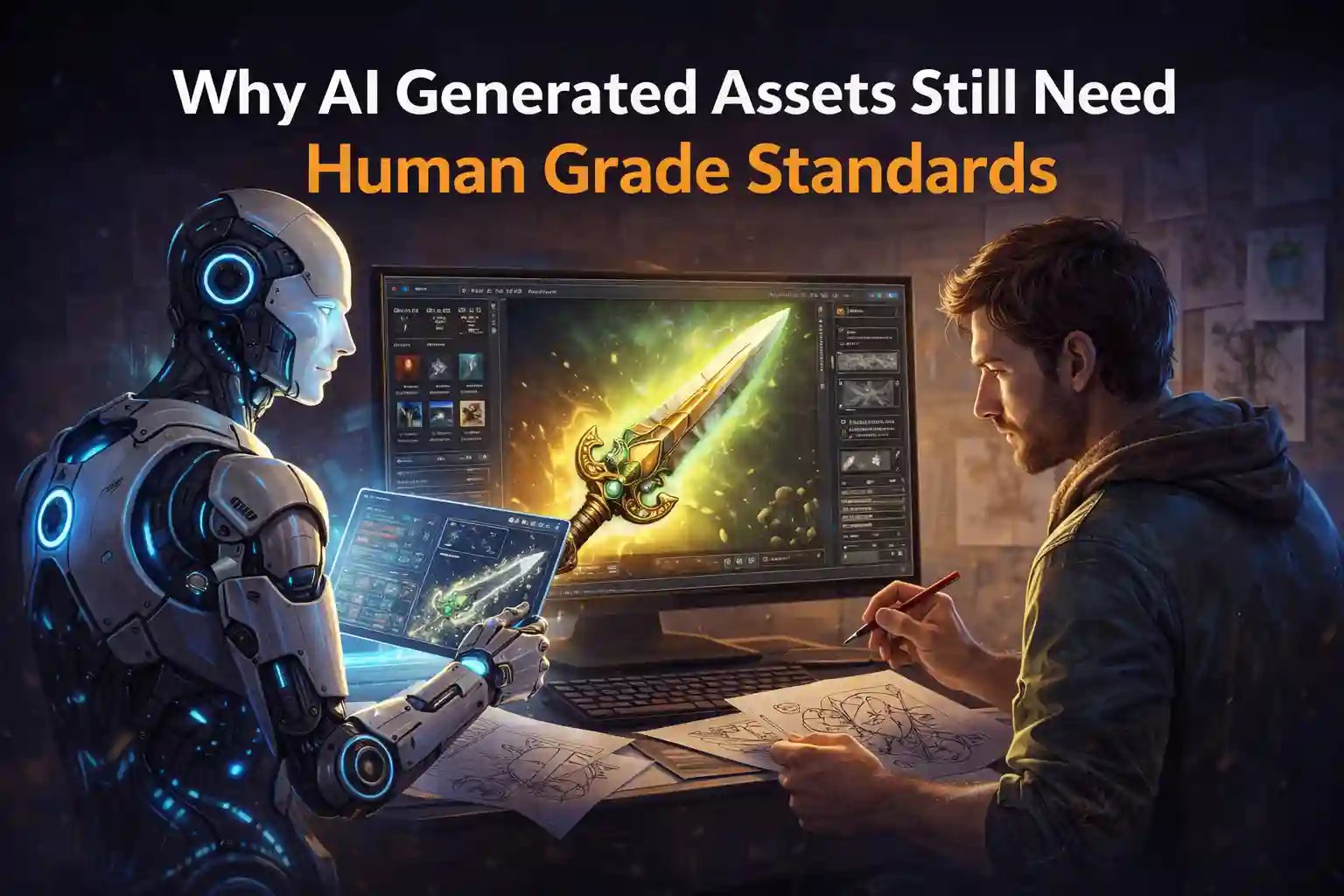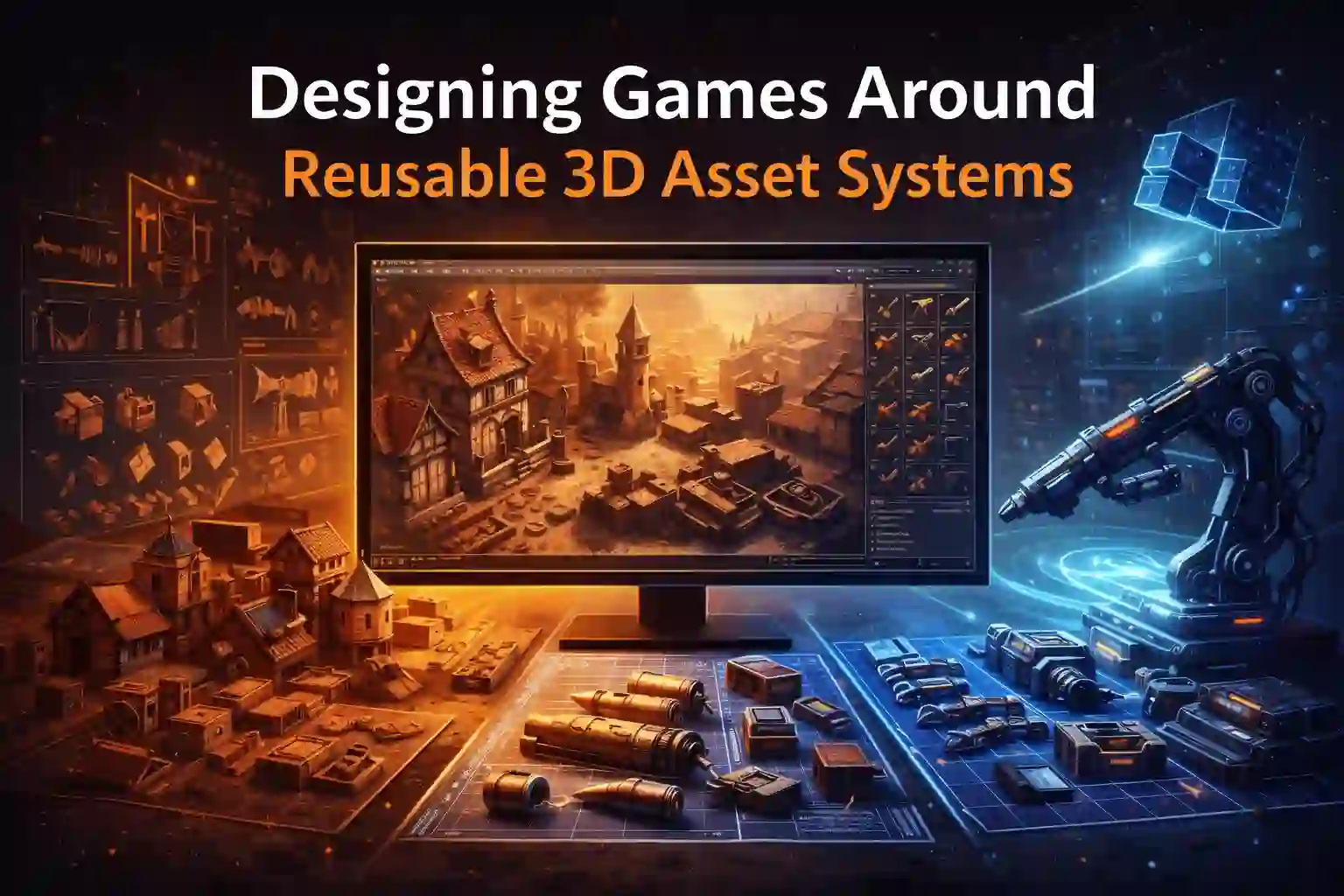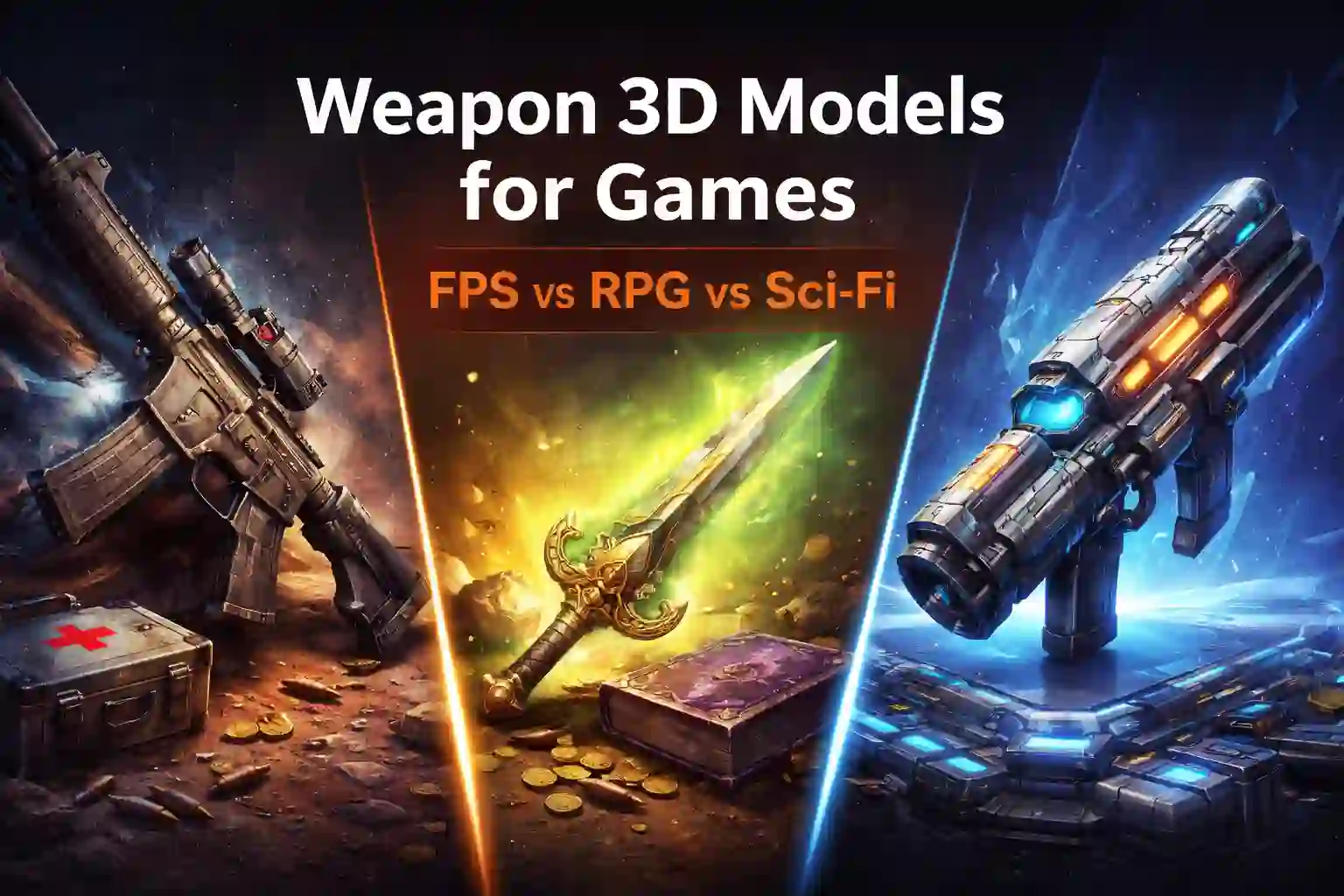The Impact of AI in Game Development: NPCs and Player Interactions
by Animatics Asset Store in Blog on July 31, 2025Artificial Intelligence (AI) is transforming the gaming world. It’s changing how developers create games and how players experience them. From lifelike non-playable characters (NPCs) to dynamic player interactions, AI in game development is making games more immersive and exciting. This article explores how AI is revolutionizing NPCs and player interactions, with a focus on creating engaging, realistic gaming experiences. Lets dive into the advancements, benefits, and tools shaping the future of gaming.
What Is AI in Game Development?
AI in game development refers to using intelligent algorithms to enhance games. These algorithms power NPCs, generate game content, and adapt gameplay to player actions. AI makes games feel alive by creating responsive and unpredictable worlds. According to a 2024 survey by the Game Developers Conference, 49% of game studios now use AI in their workflows, showing its growing importance. AI helps developers save time and create richer experiences for players.
The Evolution of NPCs
NPCs used to follow simple scripts. They repeated the same lines and actions, making games feel predictable.
AI in game development has changed that. Now, NPCs act more like real people. They respond to players dynamically, remember past interactions, and adapt their behavior. For example, in Red Dead Redemption 2, NPCs follow daily routines, react to player actions, and engage in realistic conversations. This creates a living, breathing game world.
Generative AI takes NPCs to the next level. It uses neural networks to create original dialogue and behaviors. A 2023 study by Bryter Market Research found that 99% of gamers believe AI-powered NPCs enhance gameplay, and 79% would play longer if games included them. This shows how AI in game development makes NPCs more engaging and lifelike.
How AI Enhances Player Interactions
AI in game development doesn’t just improve NPCs but it also transforms how players interact with games. AI-powered systems adapt to player choices, creating personalized experiences. For instance, the Nemesis System in Middle-earth: Shadow of Mordor tracks player interactions with enemies. If a player defeats an enemy but lets them live, that enemy might return stronger, remembering the encounter. This adds depth and replayability to games.
AI also enables dynamic storytelling. NPCs have unique personalities and motivations. Players must understand these traits to progress, making every choice feel meaningful. AI-driven interactions make players feel like their decisions shape the game world, boosting engagement.
Procedural Content Generation
Procedural content generation (PCG) is another way AI in game development shines. PCG uses AI to create game elements like levels, environments, and even music automatically. This saves developers time and increases replayability. Games uses AI to generate entire planets with unique landscapes and creatures. This makes every playthrough different.
PCG also helps create varied NPC behaviors. By combining AI with PCG, developers craft NPCs that react differently each time you play. This keeps games fresh and challenging.
The Role of Low-Poly 3D Assets
Creating realistic game worlds requires high-quality assets. Low-poly 3D assets are popular because they balance visuals and performance. They use fewer polygons, ensuring games run smoothly on devices like phones or consoles.
Tools like Rhino 3D, paired with platforms like Animatics Asset Store, provide developers with access to thousands of low-poly models. These assets, such as spooky plants or creepy chairs, fit seamlessly into game engines like Unity or Unreal Engine. They help developers build detailed worlds without slowing down performance.
Low-poly assets are especially useful for indie developers. They’re affordable and easy to integrate, saving time and resources. With over 31,000 low-poly Rhino models available in 2025, developers have plenty of options to create immersive environments.
Challenges of AI in Game Development
While AI in game development offers many benefits, it also brings challenges. Realistic AI systems demand significant computing power, which can affect game performance. Balancing complexity and performance is tough, especially for large-scale games with many NPCs. Developers must ensure NPCs remain believable without becoming repetitive.
Ethical concerns also arise. Some worry AI-generated assets could lead to job losses for artists. However, tools like Sloyd and Meshy AI show that AI can work alongside creators, not replace them. These tools streamline asset creation, letting artists focus on creativity. Developers must use AI responsibly to maintain trust with players and creators.
The Future of AI in Gaming
The future of AI in game development is bright. Experts predict more sophisticated AI models will create even more realistic NPCs. These NPCs could form emotional bonds with players, remembering interactions over weeks or months. Imagine an NPC who holds a grudge or becomes your ally based on your actions. This could redefine storytelling in games.
AI will also make game development faster. Tools like Sloyd’s AI 3D model generator turn 2D images into game-ready assets, cutting production time. A 2025 report noted that AI tools could reduce asset creation time by 40%, allowing developers to focus on gameplay and story.
Why It Matters for Players
For players, AI in game development means more immersive worlds. NPCs that feel human make games more engaging. Dynamic interactions and procedural content keep games fresh, encouraging players to return. A 2024 survey found that 81% of gamers would spend more on games with AI-powered NPCs, showing strong demand for these features.
Conclusion
AI in game development is revolutionizing how games are made and played. It powers lifelike NPCs, dynamic player interactions, and efficient content creation. Tools like Animatics Asset Store provide low-poly 3D assets that help developers build stunning worlds. While challenges like performance and ethics remain, the benefits are clear. AI makes games more immersive, personalized, and replayable. As technology advances, AI in game development will continue to push the boundaries of what’s possible, creating gaming experiences that feel truly alive.






